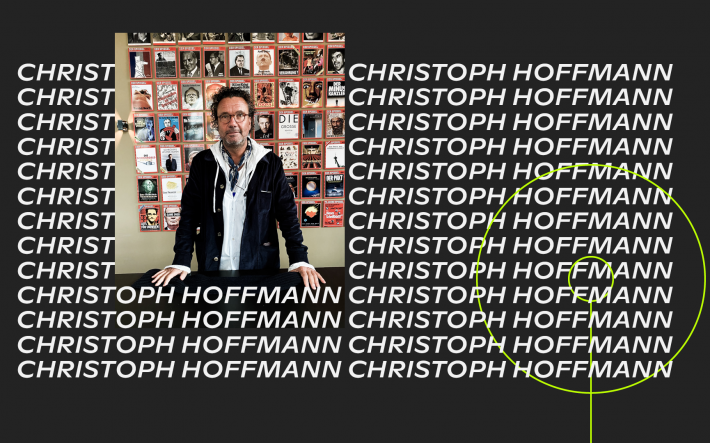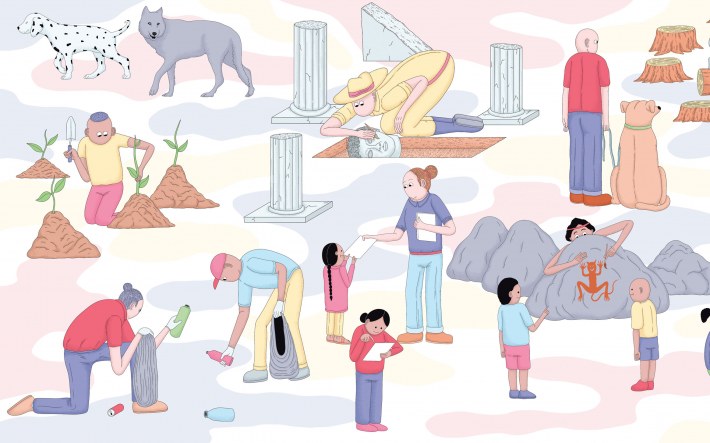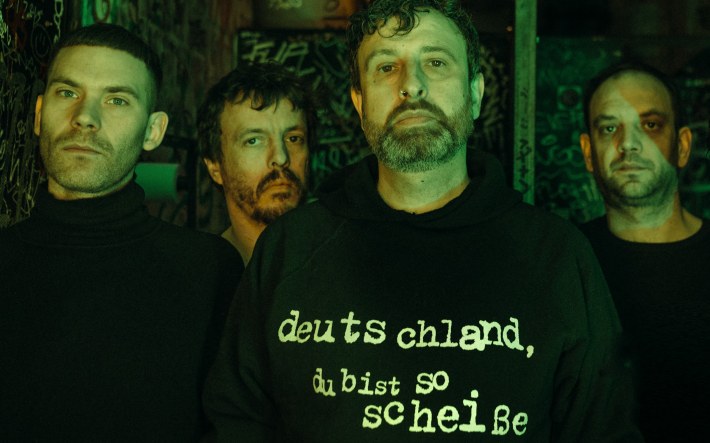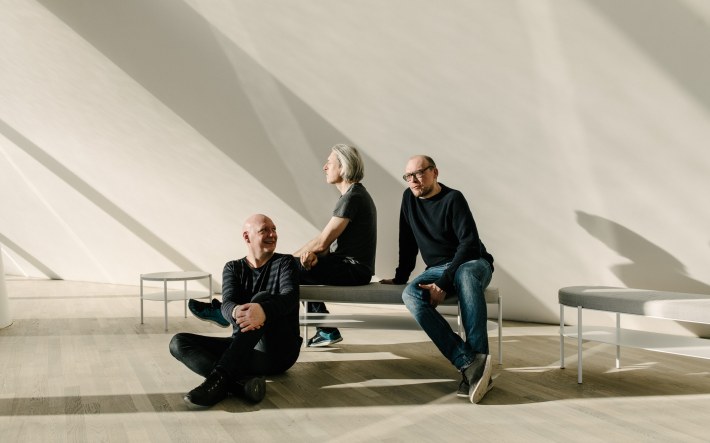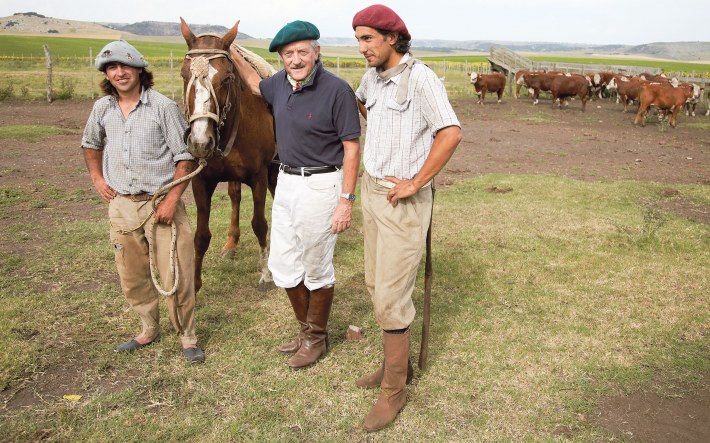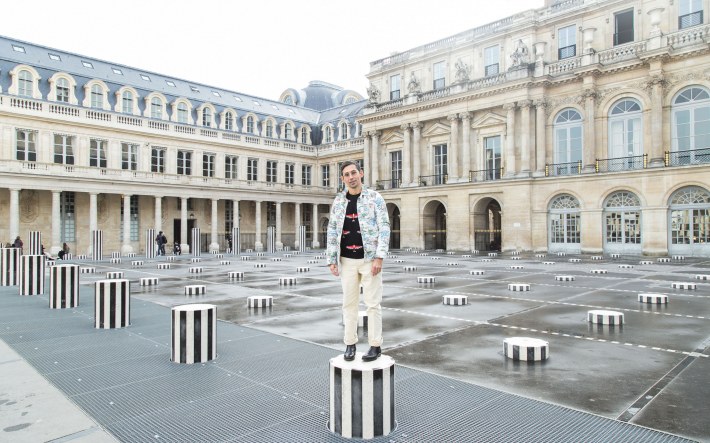Between the Strings
For Grandbrother, Lukas Vogel and Erol Sarp, the sound spectrum of the grand piano is not limited to its chords.
Under the moniker “Grandbrothers,” Lukas Vogel and Erol Sarp compose electronic dance music for the piano, which places them on par with Düsseldorf’s numerous genre-transcending musicians. For COMPANION they curated a playlist that captures the essence of the city where they met in 2011.
It’s hard to think of Düsseldorf without invoking pop music. After all, this is where the German rock band Kraftwerk laid the foundations for techno in the 1970s. Around the same time, the artists’ pub Ratinger Hof was becoming an epicentre for German punk and underground culture. It was here that art students of Joseph Beuys mingled with musicians such as Fehlfarben, DAF, and Campino, who would go on to sing with Die Toten Hosen.
This enriching exchange between art and music still resonates today — as is evidenced by listening to the Grandbrothers. Erol Sarp and Lukas Vogel, both pianists, met in 2011 when studying sound and video technology in Düsseldorf. Erol, who was born in Wuppertal, and Lukas, from Zurich, had to overcome their own prejudices when they first arrived: “You always hear that Düsseldorf is a very clean, rich, slightly cold city,” says Erol. “But there’s a vibrant arts scene — you shouldn’t forget that when you talk about it!”
As students, they both spent a lot of time at the Arts Academy and at the “Salon des Amateurs” club — hubs of experimental art and music that would soon inspire them to start their own project. “It was at that time that I started producing electronic music and building my own synthesizers. It was Erol’s idea to combine piano and electronic music,” Lukas recounts. Similar musical paths have been taken by artists such as Nicolas Jaar, Nils Frahm, and Hauschka.
As another adopted Düsseldorfer, Hauschka — who covered his piano in bottle caps, tinfoil, and egg shakers and introduced the electronically-adapted piano to pop music — has greatly influenced Lukas and Erol. The Grandbrothers want to go a step further, however. The grand piano remains the only source of their sound — both for melodies and beats. “It would, of course, be easier to fall back on samples or to do something with synthesizers. But our idea was to use mechanical means to extract abnormal sounds from the piano,” describes Erol.
Ever the inventor, Lukas developed an apparatus out of small hammers that can be externally attached to the strings or the wood of the grand piano. This allows the Grandbrothers to play the piano with four hands — Erol at the keys and Lukas from his computer. This is where he records the sounds live, distorts them electronically, and mixes them with the natural sounds produced by the piano.
If a reworked piano brings to mind John Cage and challenging conceptual music, you’ll be pleasantly surprised by the Grandbrothers. The works that make up their albums “Dilation” and “Open” are catchy and almost pop-like in places, yet remain too sophisticated to be classed as banal easy listening. For Lukas, it’s all about balance: “We are more accessible than experimental electronic music, yet compared with shallower piano music we are considered relatively experimental.”
The interplay between Lukas’s electronic effects and Erol’s intelligent harmonies pull the listener in, just like an exciting story. For though the pieces don’t have any vocals, they produce images in your head like a film soundtrack. Their tracks bear poetic titles such as “Long Forgotten Future” and “Circonflexe.” Not that these names confine the works to certain genres. Like everything with the Grandbrothers, the themes of their music arise during the creation process. “There’s no set story beforehand. We start jamming and then think afterwards: ‘Oh, now we should save that somehow.’ Sometimes something associative occurs to us. Other times we open a book, point somewhere at random, and then that becomes the name,” Erol explains, laughing.
On tour, the duo’s stage set up is something of a challenge and is bound to have given countless sound engineers gray hairs. It takes at least two hours until every small hammer is in the right place, each equalizer adjusted. For the Grandbrothers, a grand piano does not only belong in a classical concert hall. Last year they toured as a support act with DJ and downtempo producer Bonobo, played gigs at the Fusion Festival, and regularly appeared in clubs.
“We’ve got a strong club following,” Erol points out. “We don’t just make dreamy romantic piano music, but also beats. Our music is supposed to make you dance, and it works well in a club context.” An ideal evening for the duo would see them play at the Philharmonic at 8 pm before getting the party crowd in the groove on the dance floor at 2 am. Art or music, techno or classical, experimental or pop — these genres are not mutually exclusive for the Grandbrothers.


